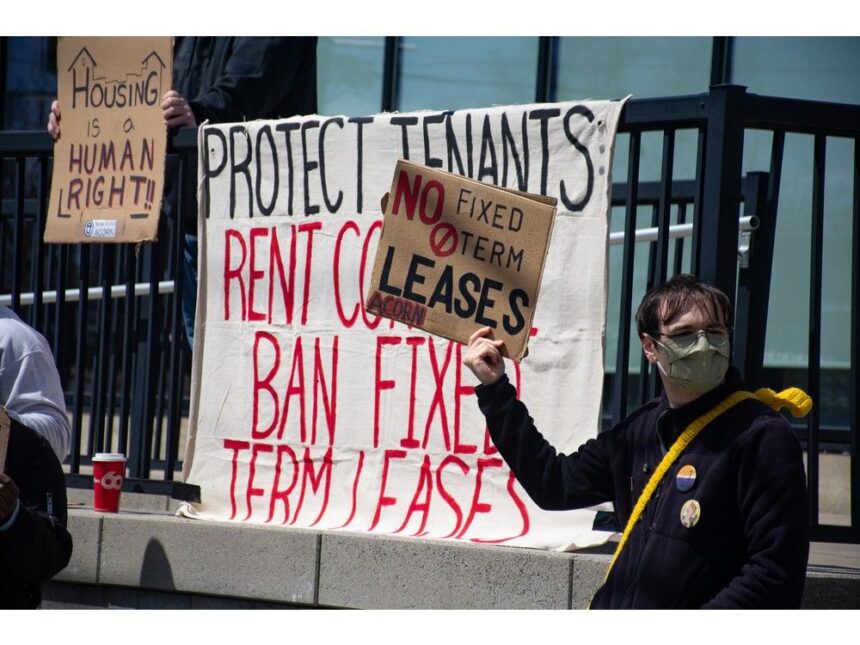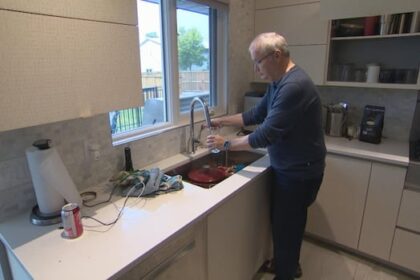Members and supporters of ACORN (Association of Community Organizations for Reform Now) call for an end to fixed-term leases during a rally in Spryfield in 2024. Photo by Ryan Taplin /Ryan TaplinArticle contentWith the province mired in a housing crisis, the contentious issue of fixed-term leases was the topic du jour as the new housing minister met with reporters following Thursday’s cabinet meeting. THIS CONTENT IS RESERVED FOR SUBSCRIBERS ONLY.Subscribe now to access this story and more:Unlimited access to the website and appExclusive access to premium content, newsletters and podcastsFull access to the e-Edition app, an electronic replica of the print edition that you can share, download and comment onEnjoy insights and behind-the-scenes analysis from our award-winning journalistsSupport local journalists and the next generation of journalistsSUBSCRIBE TO UNLOCK MORE ARTICLES.Subscribe or sign in to your account to continue your reading experience.Unlimited access to the website and appExclusive access to premium content, newsletters and podcastsFull access to the e-Edition app, an electronic replica of the print edition that you can share, download and comment onEnjoy insights and behind-the-scenes analysis from our award-winning journalistsSupport local journalists and the next generation of journalistsRegister to unlock more articles.Create an account or sign in to continue your reading experience.Access additional stories every monthShare your thoughts and join the conversation in our commenting communityGet email updates from your favourite authorsSign In or Create an AccountorArticle contentJohn White, the Glace Bay-Dominion MLA who joined cabinet two weeks ago as the new minister responsible for housing, didn’t discuss fixed-term leases directly but said a low vacancy rate has given landlords “the upper hand.” Article contentArticle contentArticle content“As housing minister, my job is to work on supply … to increase stock,” White, who was sporting a Toronto Blue Jays uniform, told reporters. “It’s really about supply and demand and that’s where I see my job in this because creating more opportunities for renters is really the option that we need. That’s where my focus is. Article content“It’s a good day to have a jersey on because governing is a team sport.” Article contentNova Scotia’s vacancy rate climbed to two per cent at the end of 2024. Halifax’s apartment vacancy rate edged up to 2.1 per cent, the first time in four years it had increased from an all-time low of one per cent. But the vacancy rate in the city remains below the 10-year average of 2.7 per cent. Article content“The current conditions are, that with the low vacancy rate, the landlords do have an upper hand. I’ll agree with that,” White said. “But my job is to increase vacancy rates, which is a good indicator of the options that are out there for people. Article contentArticle content Nova Scotia housing minister John White speaks to reporters following a cabinet meeting Thursday in Halifax – GLENN MacDONALDArticle content“The work that we’ve done as a government, we’ve increased the vacancy rate to two per cent across this province, which is really good work to do. And that’s what evens out the playing field for the renters and for landlords. That is my perspective. That’s my job on this team, as I wear a team jersey.” Article contentOpposition and NDP Leader Claudia Chender said the provincial government should be addressing fixed-term leases which are causing rental costs to skyrocket. Article contentA fixed-term lease is intended as an attractive option for students, temporary workers and others but landlords can use the so-called fixed-term-lease loophole to circumnavigate rent cap limitations by simply evicting tenants at the end of a fixed-term lease and renting to new tenants. Article contentNova Scotia introduced a two per cent rent cap during the COVID-19 pandemic, a cap that has since increased to five per cent and extended by the province to the end of 2027.
Low vacancy rate giving landlords the upper hand over renters, new housing minister says











